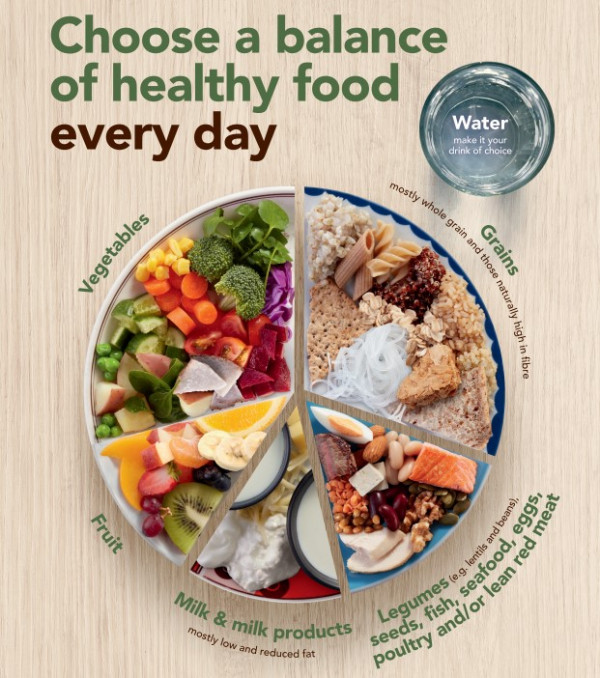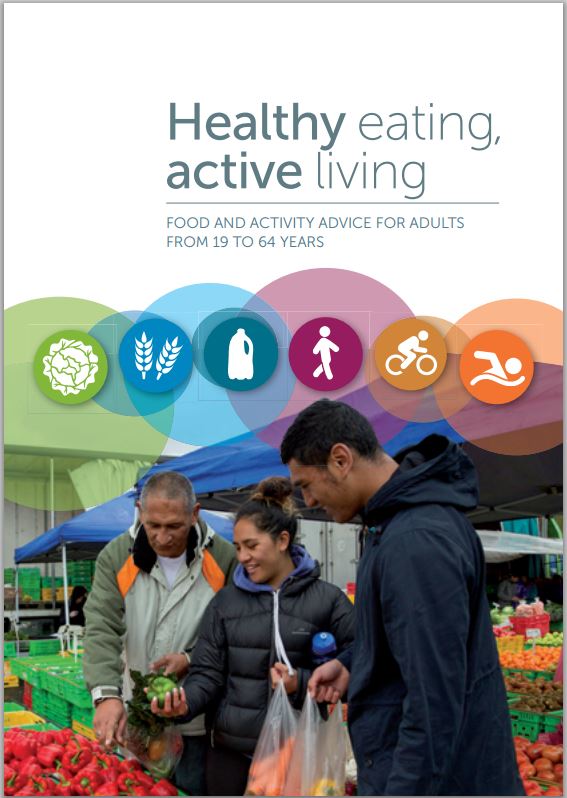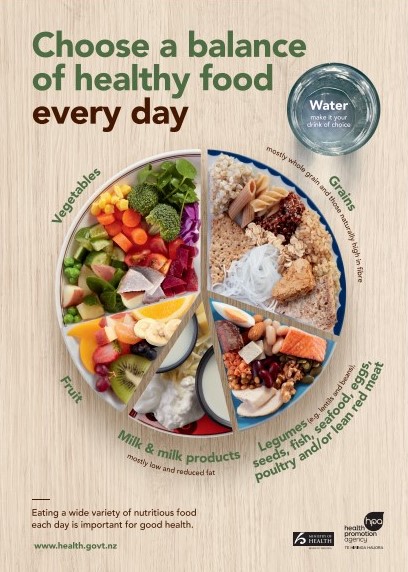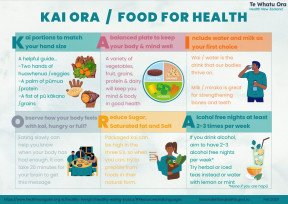Video: What's the Best Diet? Healthy Eating 101
Healthy eating can be quite complex – so sit down at the clinic with Doctor Mike Evans as he provides some great healthy eating tips and advice in this video. It may take a few moments to load.
(Michael Evans and Reframe Health Films Inc, 2015)
Choose a variety of healthy foods every day from the following 4 food groups:
- Vegetables and fruit
- Breads and cereals
- Milk and milk products
- Lean meats, chicken, seafood, eggs, legumes, nuts and seeds.

Image credit: Ministry of Health, NZ










